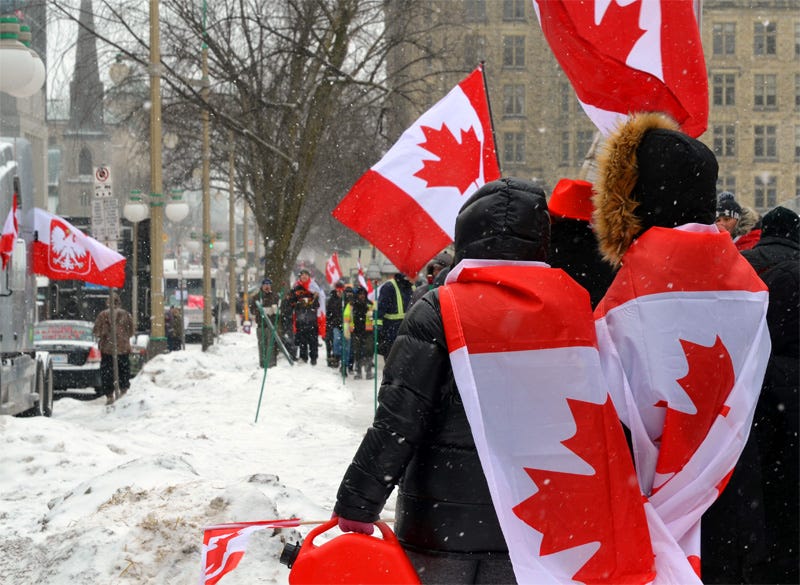If we tally up donations from four separate revenue streams, we know the Freedom Convoy raised $15.7 million in a few weeks. Money changed hands electronically in these instances, which leaves a paper trail (see my previous posts here, here, and here).
But readers of this blog know much of the financial support the truckers received took the form of cold, hard cash. Estimating how much cash is difficult, but there’s every indication it was mountainous.
One participant says cash donations through his window were as high as $1,000 a day during the three weeks he was parked on Wellington Street. Andrew Lawton’s book, The Freedom Convoy, quotes Dave, from Live from the Shed:
It was insane. Slipping people bills, handshakes with bills, Bibles with bills, cards with bills.
Andrew reports that “Processing cash donations was one of the regular functions” of a convoy command center located in the basement of an Ottawa hotel. An accountant oversaw matters, but funds didn’t stay there long for security reasons. He quotes convoy organizer Tamara Lich:
It was really like a movie. The cash would come in. There were people that would count it, stuff it in envelopes. We’d stuff it in our pockets in our coats and run out to wherever and try to get as much of it out as we could.
Someone else, says Andrew, recalled a day in which “over $90,000 was handed out to truckers in envelopes with $500 in each.” All that money represented “unexpected cash donations.”
That’s 180 envelopes of absolutely sincere material support.






I heard that from the time the emergency act was announced to the end of it, over a $billion cash was withdrawn from our banks. I suspect a lot more afterwards. This might have been one of the main reasons they stopped trying to continue it after the first week.
The good news: With all this (public ingenuity work arounds, and then cash withdraws from banks) JT might well have shot his hopes for a central government controlled digital currencies coupled with a cashless society in the foot. Let us hope.